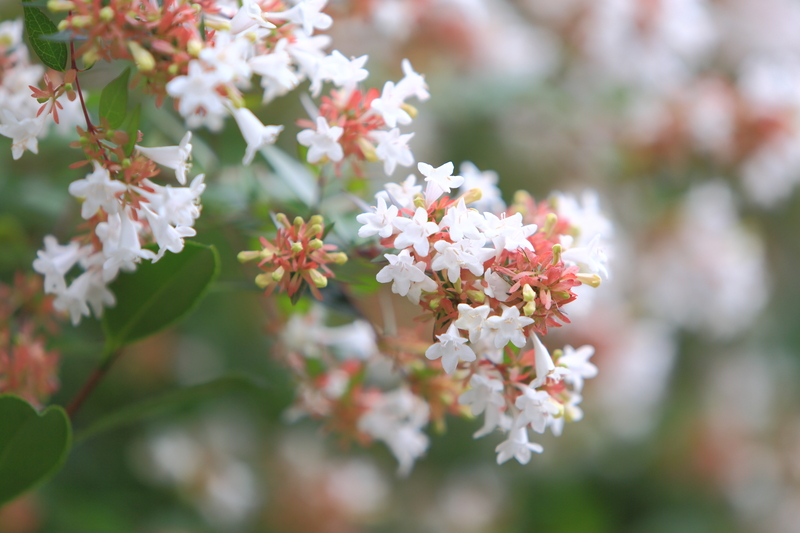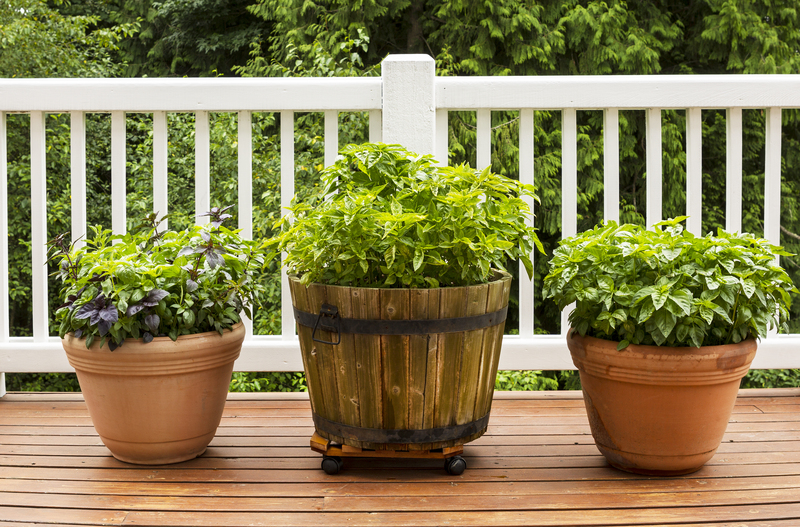Embarking on a Garden's Journey: From Neglect to Splendor
Posted on 31/05/2025
Embarking on a Garden's Journey: From Neglect to Splendor
Have you ever strolled past an overgrown plot and envisioned a lush paradise thriving in its place? The transformation from abandoned patch to vibrant oasis is both a rewarding adventure and a testament to patience, creativity, and care. In this comprehensive guide, we explore the journey of a neglected garden, uncovering secrets, strategies, and essential steps to achieve dazzling garden beauty.
Understanding the Starting Point: Assessing a Neglected Garden
Before you can transform your garden, it's crucial to evaluate the current state of your outdoor haven. This is where your garden revival journey truly begins. Pay close attention to:
- Soil health: Is the soil compacted, sandy, or full of clay?
- Weed takeover: Identify invasive species overshadowing potential growth.
- Drainage issues: After a rain, do puddles linger or does water quickly disappear?
- Sunlight levels: Observe how sunlight moves across your plot throughout the day.
- Existing plant life: Which, if any, surviving plants or trees are assets worth saving?
Tip: Take photos and notes as you survey; this helps track your progress and plan effectively.
With a Clear Vision: Setting Goals for Garden Success
The journey from neglect to splendor begins with inspiration. What is your dream for this space? Some ideas include:
- Creating a pollinator paradise full of bees, butterflies, and birds
- Establishing a tranquil retreat with cozy seating and aromatic flowers
- Designing a productive kitchen garden brimming with vegetables, fruits, and herbs
- Revamping a neglected area as a dynamic family play zone
Having a clear objective helps direct your time, energy, and resources efficiently. Whether you want to landscape for beauty, functionality, sustainability, or all of the above--clarity is step one on your garden journey.

Planning Your Garden Transformation: Essential Phases
1. Garden Cleanup: Clearing the Canvas
To transform a neglected backyard into a flourishing garden, begin by removing the old to make way for the new. This stage requires sturdy gloves and patience. Focus on:
- Pruning dead branches and shrubs to shape or remove unsalvageable plants.
- Weeding aggressively, focusing on roots, to prevent regrowth.
- Removing debris, such as fallen leaves, stones, or garbage.
- Assessing garden structures--replace or repair fences, sheds, and paths as needed.
Pro Tip: Compost healthy plant material to nourish your future garden beds.
2. Assessing and Amending the Soil
Healthy soil is the foundation for a thriving garden transformation. To journey from neglected earth to vibrant beds, follow these steps:
- Test your soil. Many local extension services offer affordable soil testing kits. Identify pH and nutrient levels.
- Add organic matter. Mix in compost, leaf mold, or well-rotted manure to improve soil structure and fertility.
- Correct drainage issues. Sand or gravel can aid heavy soils, while mulch helps sandy areas retain moisture.
- Mulch generously to protect against weeds and retain moisture while your garden establishes.
Remember, enriching your soil is an investment in your garden journey--the benefits grow each season!
3. Designing the Dream: Laying Out Your New Garden
Garden design is a blend of artistry and practicality. Sketch a rough layout or use a garden planning app. Keep in mind:
- Zoning: Group plants with similar sunlight and water needs.
- Pathways: Define clear walkways for accessibility and aesthetics.
- Levels: Incorporate raised beds or terraces for visual interest, especially on slopes.
- Focal points: Plan for a statement plant, statue, bird bath, or bench.
- Four-season appeal: Choose plants for year-round color and structure, such as evergreens for winter interest and bulbs for spring bursts.
An inspired layout is a key milestone in any garden's journey from neglect to glory--balance creativity with function!
Choosing the Right Plants: Matchmaking for Your Garden
Plant selection determines your garden's success and longevity. For sustainable transformation, consider:
- Native plants--they require less maintenance and attract local wildlife.
- Drought-tolerant species for low-water gardens.
- Perennials for lasting beauty, mixed with annuals for seasons of color.
- Vegetables and herbs, chosen for your culinary favorites and climate suitability.
- Shade or sun-loving varieties, matched to each area's light conditions.
Gardener's insight: List your favorite flowers, shrubs, and edibles. Check their compatibility with your local climate and soil.
High-Impact Plants for Dramatic Transformations
- Lavender and salvias add color, fragrance, and attract pollinators.
- Roses and peonies lend classic elegance and repeat blooms.
- Hostas and ferns thrive in shade, softening forgotten corners.
- Herbaceous borders with rudbeckia, echinacea, and grasses create a wilder, natural feel.
Selecting a blend of these plants ensures a succession of blooms and interest throughout the year.
Step-by-Step Garden Makeover Strategy
Preparation: Tools and Timing
Success in your garden transformation journey begins both with the right tools and timing. Equip yourself with:
- Spade and hand trowel for planting and digging
- Sturdy gloves to protect your hands
- Pruning shears for shaping and cut-back
- Wheelbarrow for hauling soil, compost, and debris
- Watering can or hose with adjustable nozzle
Early spring and fall are the best times for most landscaping activities, as plants root well and weather is milder.
Execution: Planting and Landscaping
- Stake out beds and borders as planned, using strings or hoses for gentle curves.
- Turn and amend soil again, ensuring the beds are loose and welcoming for roots.
- Install major features (e.g., small pond, seating area, or trellis) while access is easy.
- Set out plants (still in pots) to experiment with spacing and combinations.
- Plant thoughtfully, backfilling with enriched soil and watering each addition deeply.
As your plants settle and pathways emerge, your neglected garden's journey to splendor truly unfolds before your eyes!
Maintenance: The Heart of Sustained Beauty
Transformation doesn't end with planting. Regular maintenance is key to keeping your revitalized garden looking stunning.
Routine Care Checklist
- Water regularly, especially during establishing phase and dry spells.
- Mulch annually to suppress weeds and lock in moisture.
- Fertilize with compost or organic feeds suited to your plants.
- Deadhead flowers to encourage re-blooming and tidy beds.
- Prune shrubs and trees as needed for shape and health.
- Edge beds and paths for a crisp, defined look.
Caring for your transformed yard becomes easier as the ecosystem stabilizes, inviting birds, beneficial insects, and robust plant growth.
Dealing with Pests and Common Problems
Every garden's journey from neglect to beauty encounters challenges:
- Aphids and mites: Use neem oil or encourage ladybugs as natural predators.
- Powdery mildew: Space plants and improve air flow; treat early with organic sprays.
- Persistent weeds: Mulch heavily and pull out young weeds before they seed.
Inviting Wildlife: Creating a Living Sanctuary
Part of the splendor of a renewed garden is the diversity of life it welcomes. Attracting wildlife boosts both ecological balance and natural beauty.
Simple Ways to Support Biodiversity
- Plant nectar-rich flowers for bees and butterflies.
- Install a small birdbath and feeders for feathered friends.
- Leave a wild corner with log piles or native shrubs for hedgehogs and beneficial insects.
- Add a shallow pond, lined with rocks, for frogs and dragonflies.
Even a few small changes can turn your garden into a haven for local fauna--truly completing the transformation from neglect to thriving ecosystem.
Celebrating the Transformation: From Neglect to Splendor
Witnessing your garden's journey from ruin to radiance is a triumph worth celebrating. Hold a garden party, share photos online, or simply relax with a cup of tea amidst your blooms. Every moment in your revitalized space is a testament to your dedication and vision.
Take a moment to appreciate:
- Before-and-after photos, capturing the remarkable transformation.
- The scent of flowers and sound of pollinators, marking a healthy environment.
- The satisfaction of home-grown blooms and produce on your dining table.
The Ongoing Journey
Remember, every flourishing garden's journey is an ongoing adventure. As you gain confidence and experience, experiment with new plants, designs, and wildlife-friendly features. Share your knowledge and passion with others--perhaps inspiring them to begin their own transformation story.

FAQs: Garden Transformations Demystified
How long does it take to transform a neglected garden?Depending on the size and state of disrepair, transformation may take a season or up to a year. Small wins, like reclaiming a bed or planting bulbs, offer beauty while the larger picture evolves.
Can I revive a garden on a tight budget?Absolutely! Focus on cleanup, propagate from cuttings, swap plants with neighbors, and utilize free compost from local councils. Creativity often grows in budget-friendly gardens.
Which plants are easiest for beginners?Marigolds, hostas, daylilies, and sunflowers are resilient and rewarding. Incorporate hardy herbs like rosemary and chives for added personal benefit.
Conclusion: Embarking on Your Own Garden's Journey
Every garden, no matter its past neglect, holds the promise of future splendor. By understanding your space, nurturing the soil, selecting the right plants, and caring for it season by season, you not only restore beauty, but craft a personal sanctuary and legacy.
Let this be your invitation: Start where you are, dream big, and enjoy every step of your garden's transformative journey from neglect to glory! The next chapter of splendor is just beneath the surface, waiting for your hands and your heart.
Ready to begin? Your garden's journey awaits--bloom where you are planted!
Latest Posts
Nurturing Soil with Composting Organic Waste
Green Walls: The Future of Urban Landscaping
Turn Dark Corners into Green Havens with Evergreen Climbers

